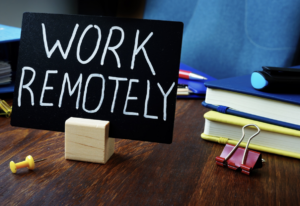Take a look at the definition, advantages, and process of doing a mock interview. Additionally, you will find sample questions to use while preparing for an interview, whether it be for a career or education.
Any interview, whether for a job or for admission to college, may be practiced with a mock interview. Improving your self-assurance, sharpening your abilities, and being fully prepared for the real interview may all be achieved via this simulation of the interview process. Before an interview, you should prepare answers to common questions, dress appropriately, and practice good manners.
With the aid of the fake interviewer’s comments, you may hone your abilities and gain self-assurance before the real thing. Get ready for that actual interview by reading up on the advantages of mock interviews, when to use them, and how to get ready for them. You can even look at some sample questions to get a feel for what to expect.
Mock interviews are what?
Get ready for that big interview by practicing with a fake interview. It’s a chance to practice for an interview with the aid of a friend or professional counselor; you may answer hypothetical questions and get honest criticism on your behavior, outfit, and body language.
A practice interview’s advantages
You may prepare for your interview with the help of a mock interview, which has several advantages, the most important of which are boosting your self-assurance and making you feel prepared. A mock interview may help with several things, including:
1.Acquiring useful interview abilities
2.Getting helpful comments and suggestions
3.Lowering your levels of stress
Gain important knowledge for job interviews.
Specific interview techniques, such as the STAR Method, may be practiced via a mock interview. To assist candidates quickly answer each question, the STAR Method is a method. STAR stands for circumstance, task, action, and outcome. An example of a well-structured answer is this:
-Premise: Paint a picture and include background information.
-Job: Describe what you’re responsible for.
-Do something and then describe it.
-Outcome: Talk about what happened next.
Making sure each response is brief, memorable, and showcases your abilities is the goal of this process, which may be developed from a practice interview.
Get insightful criticism and helpful ideas.
To help you ace such interviews, a career counselor will provide you constructive criticism. They are in a prime position to provide advice on how to improve your replies, attire, and nonverbal communication. If you’re anxious about failing to make a good impression during interviews, you could discover that slouching or fidgeting are habits you need to break.
Lessen the tension in your life.
Even though interviews aren’t fun, practicing for them with a mock interview could help you feel more prepared. A mock interview might help you overcome your nerves and feel prepared to answer the hiring manager’s queries.
Proper usage of a practice interview
Mock interviews serve a variety of purposes, but they are most often used to practice for college and employment interviews.
Getting Ready for an Interview
Physically and psychologically preparing for a job interview is possible with the aid of a mock interview. You may learn interview protocol, practice results-based replies, and alleviate some of the anxiety that comes with the recruiting process by doing this.
A college interview preparation guide
College applicants might benefit from practicing for admissions interviews using a mock interview. During the interview, admissions officers will learn more about you and your interests to determine whether the school is a suitable match for you. A practice interview is a great way to hone your interviewing abilities, demonstrate your passions, and create a positive first impression.
Strategies for aceing practice interviews
Here are some easy things you may do to be ready for a practice interview:
1.Go ahead and choose a dummy interviewer.
Everyone is fair game for a practice interview. A professional interviewer, such as a career counselor or expert, may help you narrow down your options, but you can also ask someone you know, such a parent or teacher. There are other internet resources for professional mock interviews.
2. Get yourself interview-ready.
Consider dressing similarly to how you would for your actual interview if you are participating in a mock interview. Wearing clean clothes is a common component of this. Think of wearing a well-tailored suit, a dress shirt or blouse, jeans, a skirt, or anything else suitable for the occasion, and shoes that sparkle.
Third, act as if you were in a genuine interview setting.
Plan your practice interview as if it were a video conference if that’s how you want to do your real interview. Practice using the same video conferencing software you’ll use for the interview; this will allow you to get the hang of things like signing in, activating the camera and microphone, and, if needed, blurring your backdrop.
Try to have the dress rehearsal somewhere comparable to the actual interview location if it’s an office.
Four, get there before it becomes dark.
Showing up early to an interview allows you enough of time to locate parking, register with the receptionist, and attend the interview in a composed manner. You may want to arrive twenty to thirty minutes before to the start time for your practice interview.
5. Convey the required paperwork.
Although you probably sent your cover letter and CV to the hiring manager by email, it’s a good idea to bring actual copies around. Should you find yourself in need of taking notes, don’t forget to bring along a tiny notepad along with a pen.
6. Evaluate the business.
One way to show that you’re interested in the business and its culture is to get to know it better. This will allow you to respond in a way that reflects the firm’s values and culture. This may be accomplished by gathering the following data:
Visit the business’s website to find out more about its goals, services, and guiding principles.
In light of current developments, the business’s social media platforms and Google
LinkedIn profiles of present staff members to learn more about the company’s values and job prospects
Sample questions for employment interviews
An expert in your field may tailor their preparation for the interview to your unique needs and even create sample questions tailored to the position you’re applying for. You may use the following questions and answers in your practice interview:
“Held, tell me who you are.”
Their true intention is to get you to explain why they should choose you for this position.
This easy warm-up question is often used by interviewers to begin the process. Maybe you could provide a brief overview of your job experience and highlight your relevant skills to the open position. To be more precise, you may say:
1.Employment history relevant to the role;
2.Your strengths that will be useful in your future position;
3.What you do well.
This question might also take the following forms:
Give me some background information.
Give me some reasons why I should hire you for this position.
“I was wondering, how would you rate your abilities and shortcomings?”
The key question they want to know is: What are your strongest and weakest points in terms of skills?
Read the job description carefully and make note of any qualities that are a good fit for the position. Potential strengths might lie in the areas of leadership, communication, and writing. Public speaking, task delegation, and handling constructive criticism are all areas where one may fall short. When you bring up a flaw, make sure to include your current efforts to rectify the situation.
This question might also take the following forms:
Tell me about your strongest suit.
If you could increase one talent, what would it be?
Samples of interview questions tailored to certain companies
Do you have a vision of where you’ll be in five years?
Their true intention is to find out whether this position is a stepping stone to another one.
To prepare for this interview question, focus on how you want to advance in your current role at the organization rather than listing all the possibilities you’re interested in. One thing you might bring up during an interview is your desire to learn something new or hone existing abilities that are relevant to the position you are applying for.
This question might also take the following forms:
-In your position, how do you intend to advance professionally?
-Tell me about your plans for the next five years in the workplace.
“Are you interested in working for this company for any reason?”
They want to know, deep down, why you would be an asset to this organization and this position specifically.
This reaction might be fueled by your company’s research. What you can say is:
How well your own beliefs and the company’s goals mesh
Reasons why, given your qualifications, you would be an asset in this position
Your interests in relation to the role and the company’s values
This question might also take the following forms:
Could you tell me more about the business?
Give an example of how your background is a perfect match for the position.
“Do you wish to ask me anything?” The actual question is: Is there anything more you would want to know about the position or the organization that we did not mention? Do you intend to collaborate with us in any serious way?
This question might also take the following forms:
Have we not addressed all the components of the job?
Is there anything else you’d want to know?
To prepare for a mock interview, think of a few questions related to the position and the firm, such as:
What does this position include on a daily basis?
What are the objectives during the first month of this position?
Tell me about the management style here.
In your opinion, what is the best part of working for this organization?
Sample interview questions pertaining to education
“What makes this school appealing to you?”
What they mean is: Are you going to be a suitable match?
Describe your goals for the future and how you think attending this institution will help you achieve them. To demonstrate that you are a suitable match for the institution, you might highlight certain academic and athletic possibilities that you intend to make the most of.
This question might also take the following forms:
Why did you choose this particular university?
When choosing a university, what are your priorities?
“Would you like to be involved in any extracurricular activities?”
Their true intention is to know how you may enrich campus life.
Research potential jobs before your interview and have a list of things you’re interested in doing ready to go. These groups might have an emphasis on sports (like a team) or on academics (like a math club).
This question might also take the following forms:
Are campus organizations something you’re considering joining?
Is there anything else you want to do while in university, other than taking classes?
The following actions:
Think about enrolling in some online classes to help you become more prepared for your interview. Take a course on Coursera like Advanced Interviewing Techniques to improve your interviewing skills and show off your knowledge and expertise. Participants get a certificate upon finishing the online course, and there are no hard and fast deadlines.



